In the dynamic landscape of the internet, online communities have become a powerful force, fostering connections, discussions, and collaborations among like-minded individuals. As these communities thrive, many creators and community managers seek ways to turn their passion into profit. Monetizing an online community requires a thoughtful strategy that balances the needs of the community with the financial goals of the creator. In this comprehensive guide, we’ll explore various strategies and practical tips on how to effectively monetize your online community.
Understanding Your Community
Before diving into monetization strategies, it’s crucial to understand your online community’s unique characteristics, demographics, and interests. This insight will help you tailor your monetization efforts to align with the community’s values, ensuring a seamless integration of revenue streams.
Conducting Audience Research
Begin by conducting thorough audience research to identify your community’s demographics, preferences, and pain points. Utilize surveys, analytics tools, and engagement metrics to gather valuable data that will inform your monetization strategy.
Defining Your Niche
Clearly define your community’s niche and unique selling proposition. This will not only attract a more targeted audience but also open up specific monetization avenues tailored to your community’s interests.

Monetization Strategies
Now that you have a solid understanding of how monetize your online community, let’s explore various effective monetization strategies that can be implemented.
Membership Subscriptions
Offering premium membership subscriptions is a popular and straightforward way to generate revenue from your online community. Create different membership tiers with varying benefits, such as exclusive content, early access, or member-only events. Platforms like Patreon and Memberful make it easy to set up and manage subscription-based models.
Advertisements and Sponsorships
Collaborate with relevant brands and businesses for advertisements and sponsorships. Ensure that the ads align with your community’s interests to maintain authenticity. Platforms like Google AdSense, sponsored posts, and affiliate marketing programs can be effective in this regard.
Virtual Events and Workshops
Host virtual events, workshops, or webinars that provide value to your community members. Charge a fee for access to these exclusive events, offering a unique experience or knowledge-sharing opportunity.
Merchandising
Create and sell branded merchandise to your community. This could include apparel, accessories, or digital products that resonate with your audience. Platforms like Printful and Teespring make it easy to design, produce, and fulfill orders without the need for upfront costs.
Crowdfunding
Engage your community in crowdfunding campaigns using platforms like Kickstarter or Indiegogo. Offer special perks or rewards for backers, creating a sense of involvement and exclusivity.
Premium Content and Courses
Develop premium content or online courses that cater to your community’s interests. Platforms like Teachable or Udemy provide infrastructure to host and monetize educational content.
Affiliate Marketing
Integrate affiliate marketing into your community by promoting products or services relevant to your niche. Earn commissions for every sale generated through your unique affiliate links.
Building Community Engagement
To successfully monetize your online community, it’s essential to maintain and enhance community engagement. A highly engaged community is more likely to participate in monetization efforts and support your revenue-generating initiatives.
Foster Open Communication
Encourage open communication within your community. Actively participate in discussions, seek feedback, and make your members feel heard. This fosters a sense of belonging and encourages members to support your monetization efforts.
Gamify Community Engagement
Implement gamification elements to boost engagement. Create challenges, competitions, or reward systems that motivate members to actively contribute and participate in community activities.
Exclusive Content Teasers
Provide teasers of exclusive content to non-paying members, showcasing the value of premium memberships. This can entice members to upgrade their memberships for full access to premium content.
Community Feedback Loops
Regularly seek feedback from your community about your monetization strategies. Understanding their preferences and addressing concerns will help you refine your approach and build trust.

Implementing Monetization Safeguards
As you embark on monetizing your online community, it’s crucial to implement safeguards that protect the community’s integrity and maintain trust among members.
Transparent Communication
Communicate transparently about your monetization efforts. Inform your community about the reasons behind certain decisions, and be open to feedback. Transparency builds trust and shows that you value your community’s input.
Striking a Balance
Balance is key when introducing monetization elements. Avoid overwhelming your community with too many ads or exclusive content that may alienate non-paying members. Strive for a balance that respects the community’s dynamics.
Protecting Member Privacy
Prioritize member privacy and data security. Clearly communicate how member data will be used, and implement robust security measures to safeguard sensitive information. A breach of trust in this regard can be detrimental to your community.
Testing and Iterating
Regularly test and iterate your monetization strategies based on community feedback and performance metrics. Stay adaptable and be willing to refine your approach to better align with the evolving needs and preferences of your community.
Case Studies: Successful Monetization Stories
Examining successful monetization stories can provide valuable insights and inspiration for your own community. Let’s delve into a few case studies that highlight effective strategies.
The Patreon Model: Critical Role
The popular web series “Critical Role” leveraged Patreon to build a sustainable revenue model. By offering exclusive content, behind-the-scenes access, and live Q&A sessions to their patrons, Critical Role created a thriving community willing to support their creative endeavors.
Niche Merchandising: The Dogist
The Dogist, a community centered around dog lovers, successfully monetized through merchandising. By creating and selling dog-related products, The Dogist not only generated revenue but also strengthened their brand and community identity.
Educational Courses: Skillshare
Skillshare, a platform for online courses, monetizes by offering a vast array of classes taught by experts. By tapping into the desire for continuous learning, Skillshare attracts a diverse audience willing to pay for premium educational content.
Conclusion
Monetizing your online community requires a thoughtful approach that prioritizes the needs and interests of your members. By understanding your community, implementing effective monetization strategies, fostering engagement, and safeguarding community trust, you can create a sustainable and profitable online community. As you embark on this journey, remember that success comes from a combination of creativity, adaptability, and a genuine commitment to serving your community.
Monetize Your Online Community with Zamplia
Increase cost efficiency, feasibility and quality between project and vendor, all on one platform with Zamplia. Take a tour or book a demo with us today.

 Quality Assurance
Quality Assurance
 Real-Time Analytics
Real-Time Analytics
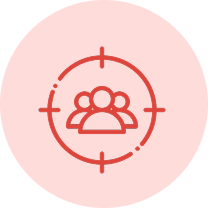 Sample Marketplace
Sample Marketplace
 Survey Builder
Survey Builder
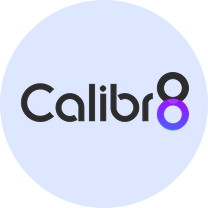 Calibr8
Calibr8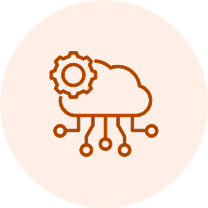 API & Integrations
API & Integrations Custom Scripting
Custom Scripting Multi-Language Support
Multi-Language Support White-Label Solutions
White-Label Solutions Brand & Advertising Research
Brand & Advertising Research Competitive Intelligence
Competitive Intelligence Customer Experience Studies
Customer Experience Studies Market Segmentation
Market Segmentation Product Testing & Feedback
Product Testing & Feedback Academic Research
Academic Research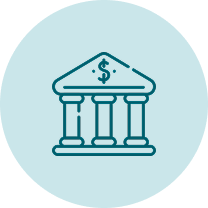 Financial Services Research
Financial Services Research B2B Professional Panels
B2B Professional Panels Consumer Research Panels
Consumer Research Panels Global Panel Network
Global Panel Network Premium Provider Partners
Premium Provider Partners Social Media Recruitment
Social Media Recruitment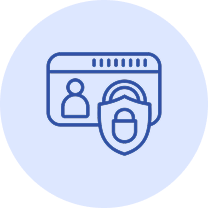 Fraud Detection System
Fraud Detection System Profile Verification
Profile Verification Quality Scoring Algorithm
Quality Scoring Algorithm Real-Time Quality Monitoring
Real-Time Quality Monitoring Response Time Analysis
Response Time Analysis Blog & Insights
Blog & Insights Case Studies
Case Studies